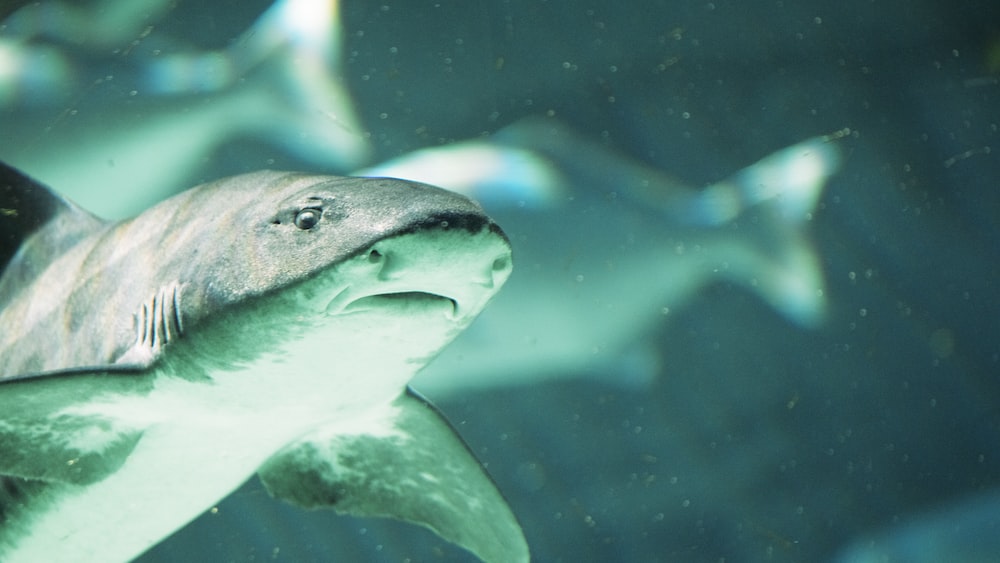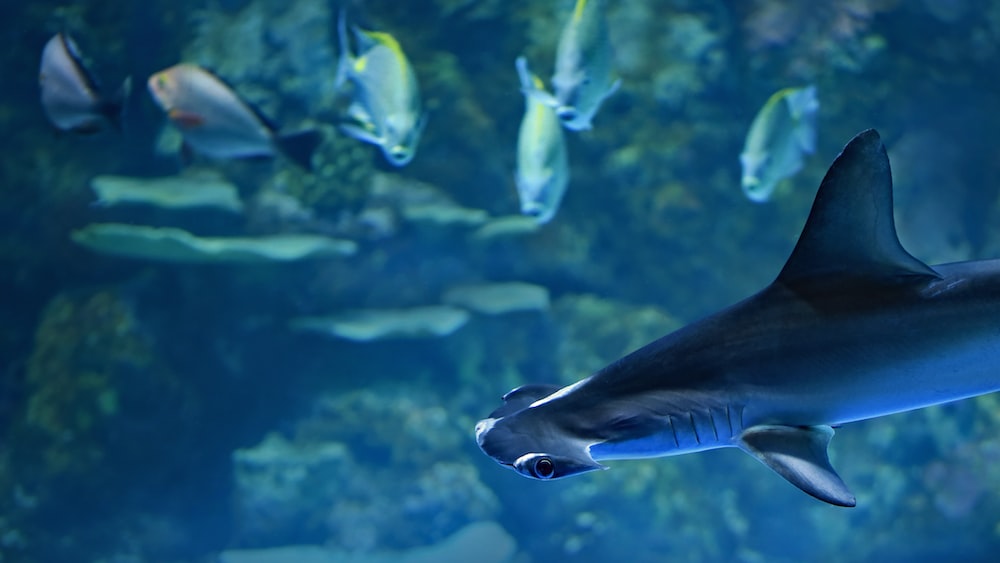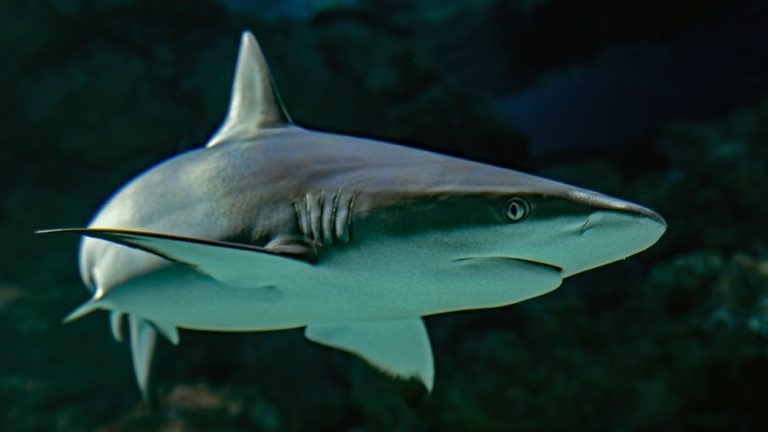Do Sharks Like Blood? Unraveling The Mystery
Do Sharks Like Blood? Unraveling The Mystery
Sharks are often the protagonists in the tales of the sea, leaving many of us marine enthusiasts yearning to know more about their mysteries. Do sharks like blood? This question seems to swirl around them as insistently as the rumors of their alleged ferocity. But what’s truth and what’s sensationalized fiction? As an eco-adventurer with a particular fondness for these misunderstood creatures, let’s take a deep dive into the scientific truths behind sharks and their relationship with blood.
Key Points:
- Sharks can detect blood in the water using their keen sense of smell.
- Sharks have a preference for the blood of their natural prey, such as fish, over human blood.
- Misconceptions about shark attacks and human blood are debunked, including the role of menstrual blood in shark behavior.
- Sharks’ attraction to blood is influenced by factors such as the species of shark and the concentration and freshness of the blood.
- Precautions for swimmers and divers include monitoring injuries and avoiding the water if bleeding significantly.
- Despite sharks’ ability to detect blood, the presence of blood in the water does not necessarily lead to an increase in shark attacks.
Marvel as we unravel the facts from fiction, understanding that the silver screen often paints an exaggerated picture, with every drop of blood in the water becoming a lore of impending doom. Blood is an intriguing substance in the oceanic realm, offering clues about marine life behaviors, but does it really send sharks into a feeding frenzy? Optimizing our knowledge about these majestic animals may just lead to greater conservation efforts and respect for our finned friends.
When it comes to shark attacks, we often hear dramatic stories that send a shiver down the spine of even the most seasoned beachgoers. Amidst this froth of misinformation, we’ll explore the science, debunk myths, and give practical insights for the safety and well-being of both humans and sharks. Let’s set sail on this investigation, with the aim to emerge enlightened and with an amplified awe for marine life.
The Science Behind Sharks and Blood
Beneath the ocean’s surface, a sophisticated world thrives where each creature, including sharks, plays a crucial role in the ecosystem. The science behind sharks and blood is fascinating, revealing insights into their sensory capabilities and natural instincts. Biologists at institutions like Birch Aquarium have studied these powerful animals, offering us clues into their behaviors and preferences related to blood.
How Sharks Detect Blood in the Water
The ability for sharks to detect blood in the ocean is just as riveting as it’s often portrayed, but much more nuanced. Sharks have a keen sense of smell, thanks in part to their olfactory organs, which can detect chemical cues in the water. Here’s how it works:
- Their nostrils are not for breathing, but solely for smelling, separate from their gills which handle the respiration.
- Each nostril is divided into two parts by a flap of skin called a nasal flap, enhancing their ability to pick up faint scents.
Blood molecules disperse in the water, creating a trail that sharks can follow, much like a suspenseful plot that thickens as the storyline progresses. These marine guardians can distinguish between different scents, drawing them to the source in anticipation of a potential feast. It’s a fascinating dance between the biology of sharks and the substances that enter their domain.
Sharks have a highly developed sense of smell, using their nostrils to detect chemical cues in the water and follow blood trails in anticipation of a potential feast.
Human Blood vs. Fish Blood: Do Sharks Have a Preference?
Do sharks like blood from all creatures equally, or do they have a gastronomic preference? Well, it turns out that sharks are more gourmand than we give them credit for.
Human blood is, in reality, quite different from the blood of marine animals, such as fish. Here are the main differences:
- Human blood contains different levels of amino acids and fats compared to the blood of marine creatures.
- The diet of humans is far less ocean-centric, therefore presenting sharks with a rather unfamiliar olfactory profile.
As a result, sharks are not particularly drawn to human blood; their taste buds are evolutionarily tuned to the blood of their natural prey. That is not to imply that they won’t investigate any blood in the water out of curiosity, but rather emphasizes that fish blood is more aligned with their palate. It’s intriguing to note that our red life force is more of an oddity than a magnet for these apex predators of the sea.
Debunking Myths About Sharks and Human Blood
The world of sharks is shrouded in myth, and none so pervasive as those relating to shark attacks and human blood. As we delve deeper, it becomes clear that these oceanic detectives are often wrongfully accused based on misconceptions rather than factual evidence.

The Role of Menstrual Blood in Shark Behavior
When it comes to menstrual blood, misconceptions seem to enjoy a particularly stubborn flotation in the waters of public opinion. Let’s clear the air:
- First and foremost, the amount of blood released during menstruation is minimal, making it significantly less detective than a more substantial source.
- Secondly, as previously discussed, sharks’ tastes are fine-tuned for fish blood, not ours.
Contrary to popular belief, there is no compelling evidence to suggest that menstrual blood causes an increase in shark behavior or shark attacks. Although always discerning, the mighty shark is not the blood-seeking missile many have been led to believe.
Misconceptions About Shark Attacks and Blood
Let’s tackle two bleeding misconceptions about shark attacks:
- Shark attacks are not typically blood-motivated occurrences. These events are often cases of mistaken identity or curiosity rather than blood-induced rampages.
- Human blood in the water does not lead to a dramatic uptick in shark-related incidents. The presence of blood might pique a shark’s interest; however, attacks are rare and usually not the result of blood detection.
In truth, sharks are calculating and often cautious creatures, dismissing most anomalies in their waters as uninteresting. They’re not the mindless marauders of maritime myths but have a nuanced approach to the blood they encounter in their saltwater sanctuaries.
Shark attacks are usually cases of mistaken identity or curiosity rather than blood-induced rampages, and the presence of blood in the water does not dramatically increase shark-related incidents.
Behavioral Responses of Sharks to Blood
Blood can be a powerful element in the ocean, but how do sharks actually respond to it behaviorally? There’s a careful choreography that occurs within the waves, a rhythm between predator and prey sparked by the scent of blood.
Factors Influencing Sharks’ Attraction to Blood
The degree to which sharks are attracted to blood is influenced by several compelling factors:
- The species of shark, with some having a more refined sense of smell than others.
- The concentration and freshness of the blood, as newer scents are more likely to draw attention.
Undoubtedly, sharks are curious creatures, and blood in the water can be a tantalizing clue to a potential meal. But their response is a sophisticated evaluation rather than an instinct-driven dash to dine.
Understanding Shark Feeding Habits
To fathom the truth behind “do sharks like blood,” one must comprehend their feeding habits:
- Sharks prefer to feast on sick or weak animals, which makes free-flowing blood from a live, healthy source less appealing.
- Their diet is mostly comprised of fish and marine mammals, whose blood is more akin to their taste.
Dining beneath the waves is an intricate balance of preference, opportunity, and necessity. While blood may act as an underwater dinner bell, it’s the condition of the prospective prey that will ultimately determine whether sharks decide to bite.
Understanding sharks’ feeding habits is crucial to debunk the myth about do sharks like blood, as they primarily target sick or weak animals instead of being attracted to free-flowing blood from live, healthy sources.
Safety Measures and Blood in the Ocean
When it comes to dancing with the denizens of the deep, particularly the kind that have garnered a rather toothy reputation, the prevailing wisdom amongst marine enthusiasts, and quite a few veterinarians of the sea, is that a drop of precaution could be worth an ocean of cure. The interplay between blood and our finned friends has stirred many a tale, but the focus here lies on the ebb and flow, quite literally, of safety when blood is introduced to our vast blue backyard. Whether it’s a simple nosebleed or a more serious injury, it’s paramount to understand the do’s and don’ts to maintain the delicate balance between humans and sharks.

Precautions for Swimmers and Divers
It’s no myth; the mere hint of blood can turn a calm ocean playground into a stage for potential encounters of the sharp kind. As such, swimmers and divers should take several precautions:
- Monitor any injuries closely, ensuring they’re properly protected before entering the water. It’s better to be safe than sorry, channeling one’s inner Sally Ride and boldly explore the ocean while also respecting its inhabitants.
- Avoid the water entirely if you’re bleeding significantly. Even if tales of sharks tracking a single drop of blood for miles are more fable than fact, better not to stir the pot; or in this case, the sea.
Swimming with the sharks? Sounds adventurous, but your body’s own traditions should dictate your caution in the water. Just remember, when there’s blood in the water, even the bravest should consider observing from the deck.
How Likely Are Shark Encounters Related to Blood?
When we think of the predators of the deep, it’s natural to wonder about the connection between shark encounters and the presence of blood. While there seem to be more myths floating around than jellyfish in a bloom, the fact remains:
- Sharks are remarkably adept at detecting blood, but that doesn’t mean every drop turns you into a target.
- Numerous factors contribute to shark behavior, including the type of shark and other environmental queues. In fact, sharks don’t zoom toward humans on the mere whiff of blood like some underwater version of Rachel Feltman’s worst nightmares.
Hence, while there’s always a degree of risk when entering the shark’s domain, blood in the water doesn’t necessarily mean an imminent close encounter of the finned kind.
Sharks are adept at detecting blood, but not every drop makes you a target; various factors influence their behavior, and blood in the water doesn’t always lead to a close encounter with a shark.
FAQs
1. Can sharks really smell a drop of blood from miles away?
Sharks have an acute sense of smell, allowing them to detect blood from a distance; however, smelling a drop of blood from miles away is not quite the case. Their ability is impressive but not as exaggerated as popular belief would have us think.
2. Are shark attacks more common when there’s blood in the water?
Shark attacks being more common with blood in the water is mostly unfounded. Most shark experts agree that while sharks are indeed attracted to blood, there’s no significant data linking the mere presence of blood with an increase in attacks.
3. Is it safe to swim in the ocean during menstruation?
Swimming in the ocean during menstruation is generally regarded as safe, with no scientific evidence suggesting increased risk during menstruation. The amount of blood is minimal and typically does not attract sharks more than at any other time.
4. How do sharks behave differently around human blood compared to fish blood?
Sharks behave differently around human blood due to its different composition from fish blood. There isn’t a definitive answer; however, sharks are more attuned to fish blood, which is more common in their natural diet.
Conclusion
As marine life enthusiasts and stewards of the ocean’s future, it’s clear that understanding the nuances of shark behavior and their relationship with blood is more than just idle curiosity – it’s part of a broader commitment to conservation and coexistence. Debunking the myths surrounding whether sharks like blood and addressing our human concerns with facts can foster a safer environment for all who share the ocean’s bounty. And even as we dive into these mysteries, the need for balanced and respectful engagement with marine life remains as pertinent as ever.
So, the next time you’re preparing for an underwater adventure or simply dipping your toes in the salty embrace of the sea, remember these insights. Let them guide your interactions, not dictate your fears, because ultimately, our oceans are a place of wonder and discovery.
And finally, for those who tread the water’s surface or delve into its depths, let your curiosity be as boundless as the sea, but always tethered to the reality that beneath the waves, we are but visitors. Take care, fellow ocean wanderers.
Until the next tide, Jasper Flynn








